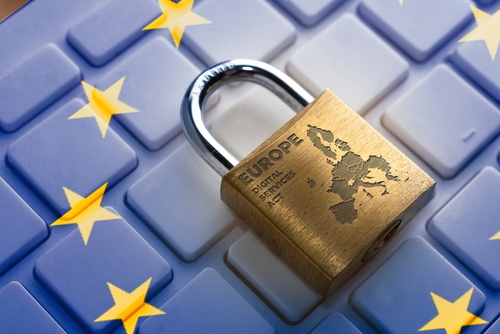U.S. Rep. Lou Correa (D-CA) led more than 20 of his House colleagues in urging President Joe Biden to insist that European Union (EU) policymakers administer and enforce their digital policies fairly.

Correa and the lawmakers expressed concern with the EU’s designation of five U.S. companies as “gatekeepers” under the Digital Markets Act (DMA). In a letter to Bidem the Congress members said that while “[o]ur strong relationship with our European allies remains essential…recent decisions by EU authorities pose serious potential damage to America’s competitiveness and security interests.”
Alog with Correa, ranking member of the House Administrative State, Regulatory Reform, and Antitrust Subcommittee, the letter was signed by Reps. Thomas Massie (R-KY), Suzan DelBene (D-WA), Darin LaHood (R-IL), Zoe Lofgren (D-CA), Jimmy Panetta (D-CA), Deborah Ross (D-NC), Gerald Connolly (D-VA), Sydney Kamlager-Dove (D-CA), Ami Bera (D-CA), Troy Balderson (R-OH), Debbie Wasserman Schultz (D-FL), Cliff Bentz (R-OR), Jared Moskowitz (D-FL), Marilyn Strickland (D-WA), Scott Fitzgerald (R-WI), Adrian Smith (R-NE), Jim Himes (D-CT), Larry Bucshon (R-IN), Russell Fry (R-SC), Young Kim (R-CA), and Barry Moore (R-AL).
“American ingenuity and innovation support over 18 million American jobs, add $2.3 trillion to the U.S. economy, and create economic opportunities across the United States. Securing our leadership in this sector is imperative for our economy and American workers,” the members wrote. “[T]he designation of leading U.S. companies as “gatekeepers” threatens to upend the US economy, diminish our global leadership in the digital sphere, and jeopardize the security of consumers.”
The EU’s digital agenda could cost American businesses $97 billion, including $45 billion on small businesses, and will limit U.S. exports to Europe by at least $13 billion, a recent report from the Center for Strategic and International Studies estimated.
Last year, the Biden Administration pressed the EU to revise the rules under the DMA to safeguard American intellectual property and economic and security interests.
“We commend your efforts at the Trade and Technology Council and encourage you to maintain the critical relationship between Europe and the United States,” they added, “but we are disappointed by the lack of a strong coordinated U.S. government in response to the clear targeting of U.S. companies by EU policies, especially under the DMA.”
The Congress members urged Biden to immediately investigate how Europe’s “digital sovereignty” agenda may damage American economic and security interests, including compelling American firms to transfer U.S. data, trade secrets, and intellectual property to European, Chinese, and other foreign companies.
They would also like to see the administration secure commitments from European leaders that Europe will cease developing or implementing measures that discriminate against American companies and workers. This includes using or applying provisions like the DMA’s “gatekeeper” or the Digital Services Act’s “Very Large Online Platforms” in a discriminatory manner in future legislation and regulations.
Finally, they would encourage DOJ and FTC officials working in Brussels to support U.S. companies and demand regulations promulgated through the DMA do not cause undue damage to or inequitably discriminate against American companies.